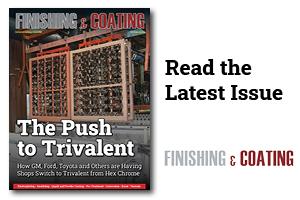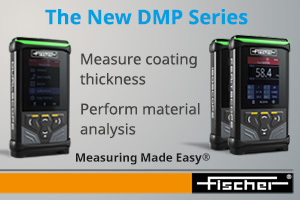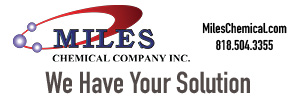Mike Petrey had been in the trucking industry for several decades before getting the call to become Plant Manager at powder coater Prism Technologies in Redford, Michigan.
 Mike PetreyIt was a dirty job for many who worked over the road, from moving cargo to working on the truck to unloading in the hot sun. But powder coating is a notch above all of that, he says.
Mike PetreyIt was a dirty job for many who worked over the road, from moving cargo to working on the truck to unloading in the hot sun. But powder coating is a notch above all of that, he says.
“This is a dirty job,” Petrey says of Prism Technologies's work at its plant 15 miles northwest of downtown Detroit. “The powder coating gets everywhere when you are spraying all day. It’s not like a liquid paint shop where everything is clean and contained. It's hard to do that when you have powder blowing everywhere.”
Such is life at Prism Technologies, which was founded in 1997 as a small family company with two employees and 2,500 square feet. The founder, Eric Felton Sr., had a history with powder manufacturing and quality control with Glidden paints. He branched into consulting and assisted in powder line set-ups and troubleshooting all over the country, Petrey says.
6 Spray Booths, 1 Conveyor Lines, and 4 Ovens
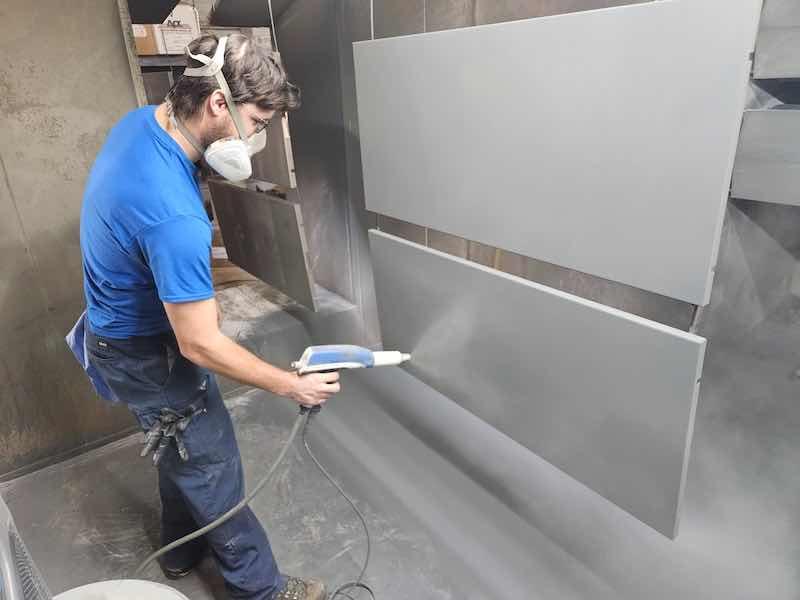 Prism has six spray booths, one conveyor line, three batch ovens, and one line oven.Today, his son, Eric Jr., owns the facility with six spray booths, one conveyor line, three batch ovens, and one line oven. Most of their work is in the automotive industry, with parts such as material handling racks for several fabricators.
Prism has six spray booths, one conveyor line, three batch ovens, and one line oven.Today, his son, Eric Jr., owns the facility with six spray booths, one conveyor line, three batch ovens, and one line oven. Most of their work is in the automotive industry, with parts such as material handling racks for several fabricators.
But it’s a dirty job for the Prism Technologies team and Petrey, who joined the company four years ago,
“Of the six paint booths, none are closed-door,” he says. “We have big collectors, but there's dust everywhere. It's a chore just trying to keep the shop clean.”
Petrey manages 12 full-time employees in three buildings totaling around 30,000 square feet. They also have one of the largest batch ovens in the area, a 12-feet by 25-feet oven.
He got his start in the coating industry four years ago when Eric Jr. — whom he had worked with in the trucking industry for many years — asked him to join him at Prism Technologies when Eric Sr. decided to retire.
Petrey says he had no surface finishing experience, but the chance to become a partner in the business was very enticing, so he joined Felton, whom he had known for close to 30 years.
“I got tired of traveling all the time, so it's nice to be here,” he says.
Training with the Experts
 Eric Felton Jr.His first few weeks on the job were spent sitting back and watching the operation, trying to pick up the nuances of the business and seeing how things were being done.
Eric Felton Jr.His first few weeks on the job were spent sitting back and watching the operation, trying to pick up the nuances of the business and seeing how things were being done.
After soaking that up and seeing a few areas where better efficiencies could improve things, Petrey then headed to Parker Engineering in Westland, Michigan, a supplier of paint finishing lines, pretreatment lines, and electrocoat lines.
He soon learned under the tutelage of John Cole, President of Parker Engineering and an expert in powder coating applications who has taught courses for decades. He helped thousands of powder coaters understand the process's delicacies.
Petrey attended a week-long training course at Parker Engineering and gained valuable insight into how the powder coating process works and how it should be done properly.
“It was a lot of hands-on training with the powder guns and understanding how they work,” he says. “We use a lot of Parker equipment, and most of our ovens and guns were all designed and made by Parker. They tend to work with us pretty well.”
More importantly, Petry and Eric Jr. always had Eric Sr. — a decades-long veteran of the coatings industry— only a phone call away.
“Sometimes something will come up that we don't understand,” Petry says.” Why does this finish look like this? Why are we getting fish eyes when there shouldn't be? And why is this orange peeling when the mil thickness is very minimal? We call him, and he's very intelligent about this and can figure things out pretty quickly.”
Taking a Hard Look at Vendors and Pricing
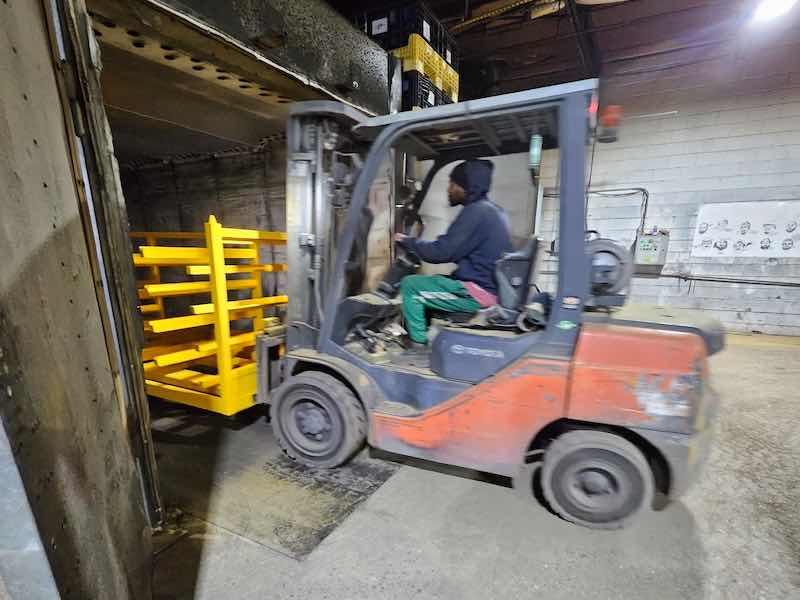 Obviously, one of Petrey's main goals in becoming Plant Manager was to help increase revenue and bring more work into the business. As for profit margins, he looked hard at their pricing, vendors, powder suppliers, equipment suppliers, and even utilities to see where they could make improvements.
Obviously, one of Petrey's main goals in becoming Plant Manager was to help increase revenue and bring more work into the business. As for profit margins, he looked hard at their pricing, vendors, powder suppliers, equipment suppliers, and even utilities to see where they could make improvements.
“But you can only go so far with that,” Petrey says. “There's not a whole lot you can do when you're at the mercy of the gas and electric company on that. But we wanted to stay competitive in the pricing market.”
As Plant Manager, Petry oversees the quoting process and says they get between 60% and 70% of the jobs they quote.
“We're very competitive with our pricing, and our big plus is our turnaround time,” he says. “A lot of other shops in the area here were being told by our customers that all the other shops are running two to three week lead time. We're still offering three to four days lead time for most of our customers.”
A big part of that faster turnaround time is that Prism Technologies has begun working more with Kroma Coatings based in Columbus, Ohio, to get much of the powder coating sourced. Petry says Krome Coatings offers quick service on getting them coating projects, which helps when Prism is trying to get parts back into the hands of their customers quicker.
Petry has worked with Kroma Coatings’ Parth Moradia, who runs the sales division.
“Some of his pricing is out of this world and impressive,” Petrey says. “We are getting more and more powder coating from Kroma because of their price point. And they are right down the road, three hours away. So we will have it the next day, and if an emergency comes up, I can send the guy down to our company truck just to pick up a box of powder.”
Working With Vendors Who Understand Smaller Shops
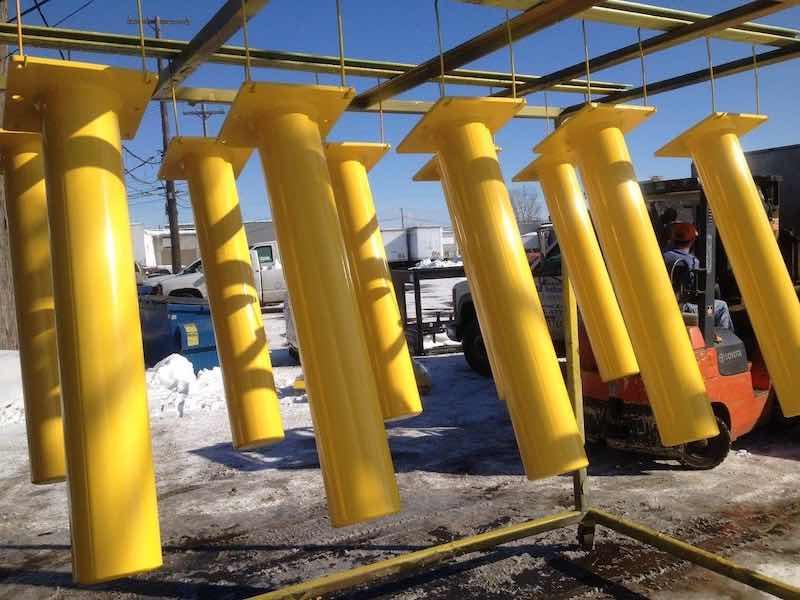 More importantly, Petrey says he likes how Kroma Coatings’ owners Moradia and Mihir Vasoya treat shops like Prism Technologies.
More importantly, Petrey says he likes how Kroma Coatings’ owners Moradia and Mihir Vasoya treat shops like Prism Technologies.
“I liked the way they do business,” he says. “We're a small business and not one of those big line companies. We're not ordering 25,000 pounds of powder powder at one time, and we're not signing consignment contracts for all these bulk powder orders.”
That means shops like Prism Technologies are always looking for like-minded vendors who are willing to help shops of any size.
“We're looking for providers that will work with us,” Petrey says. “If we call them and say, ‘Hey, we got this big job coming up. We're going to need 2,000 pounds of powder, or we're going to need 5,000 pounds of powder to do this job, but I don't want you to ship it all to me at one time if you can make it and then just hold it.’ Those are the suppliers we want to work with.”
That has come up in the past with Prism, where they just need powder in 500-pound increments until it's all gone, and then 500 pounds every two weeks or 500 pounds a month. It also works out well financially.
“We avoid that big 5,000-pound invoice that we have to pay all at once,” Petrey says. “A job that large might take us two to three months to complete for the customer, whereas if they want all their money for the powder up front, sometimes it's difficult to do that as a small business.”
That combination of working with vendors such as Parker Engineering and Kroma Coatings has been a success for Prism Technologies. They are seeing orders from existing customers growing more every month.
“For some of our bigger customers, they're bringing us loads of material handling racks daily,” Petrey says. “And we're doing work for them every day, and they're dropping off and picking up daily. It's just a repeat cycle.”
Training Staff from the Start
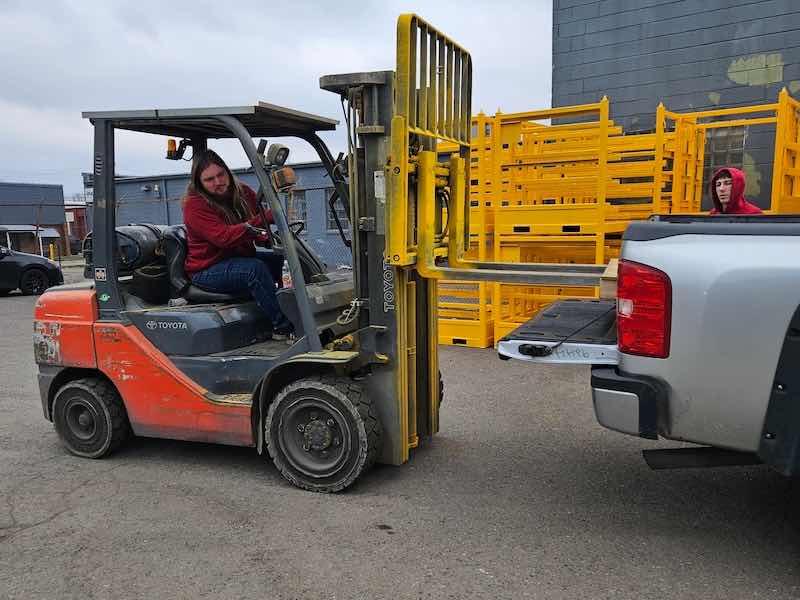 Petrey says they have spent more time focusing on quality processes rather than turnaround times.For Prism Technologies, having good finishers working for them has been the key to delivering consistent quality. Almost all of the dozen employees apply powder coat, and Petrey says most have been trained directly by either Eric Sr., Eric Jr., or himself, which helps avoid those coming in with bad habits and working to correct those.
Petrey says they have spent more time focusing on quality processes rather than turnaround times.For Prism Technologies, having good finishers working for them has been the key to delivering consistent quality. Almost all of the dozen employees apply powder coat, and Petrey says most have been trained directly by either Eric Sr., Eric Jr., or himself, which helps avoid those coming in with bad habits and working to correct those.
“We are the ones that trained him on how to paint and what we're looking for,” he says. “And to this day, we're still working with all our guys out there when we see something; we're always looking for improvement because it's not always about speed and, ‘We need 20 of these racks pushed out today.’ I'd rather have 12 racks pushed out that I know the customer will be more than thrilled with and not send back to me to have it recoated than send 20 out that five of them are coming back to me.”
Petrey says they have spent more time focusing on quality processes rather than turnaround times, and those two principles go hand in hand, especially in a chaotic automotive business cycle.
“The economy was just a mess, and the automotive industry has been in a mess,” he says. “They had the strike at the end of last year, filtered into this year, and then just with the economy and everything, it's been tough trying to balance everything. But I think we've pulled through it pretty well.”







